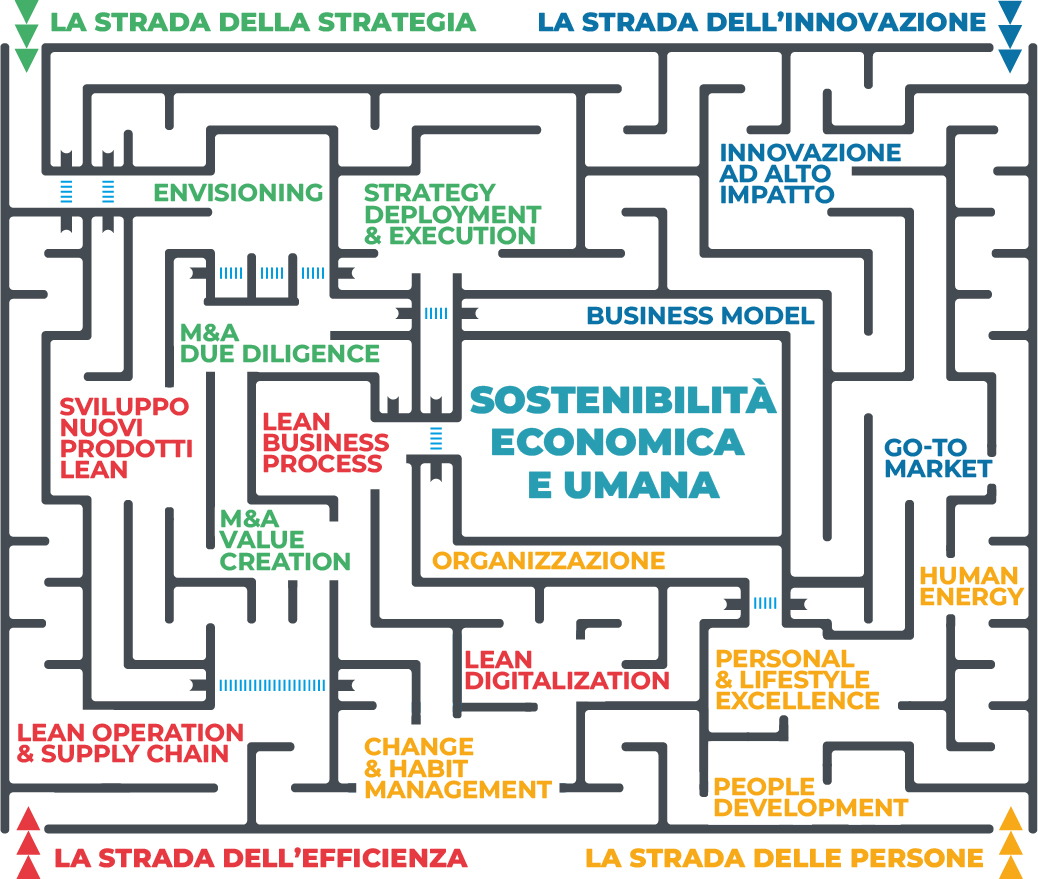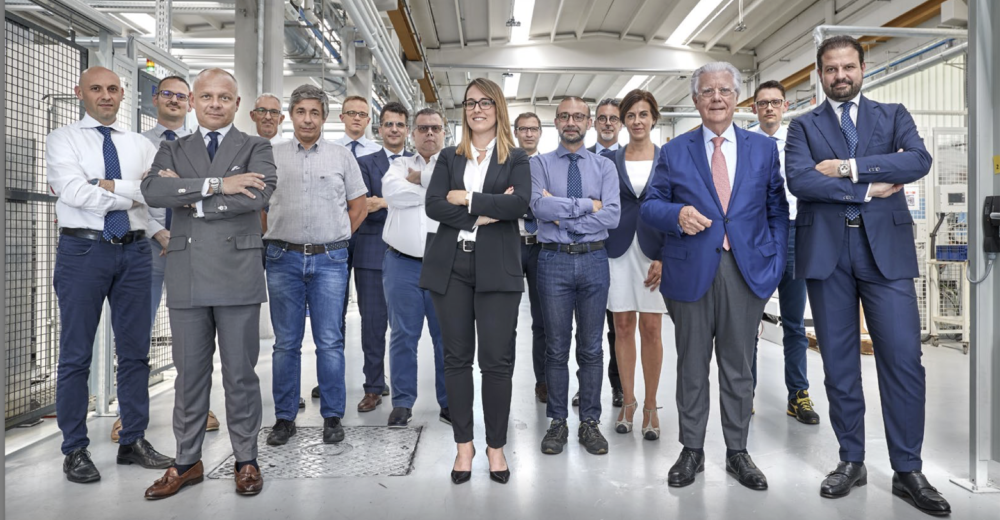Private Equity and Sustainability: a possible combination

Indice
Private Equity: what it is and why it aims to improve companies’ economic results
There are now many, indeed very many, forms of investment in our day. Among the most important economic interests, private equity is of particular importance, and more and more people have been talking about it in recent years.
The term “Private Equity” refers to a sphere or category of financial investments by which a company, which may also be an institutional investor, goes to finance with the capital contribution of a target company by purchasing shares, or by subscribing to newly issued shares and thus bringing in new capital (as well as often new management).
In this type of investment, the capital is allocated to companies not listed on a public stock exchange, where private parties invest in projects characterized by a level of risk that may be higher or lower and, in any case, commensurate with the possible return.
Private equity funds, therefore, are investment operations in which private parties evaluate the opportunities presented on the market and buy and manage the shares of companies over a period of five/ seven years. In the next phase, defined as divestment, having valued all the companies in the portfolio, they proceed with their liquidation, with the goal of maximizing the investment made.
Focusing on the “after”, and specifically on the phase of disinvestment, the primary objective of Private Equity is to maximize the investment made.
Private Equity and Sustainability: a winning combination
Until recently, in a market that was not yet structured, the main modalities for managing the life cycle of the company or the investment’s value project were three types:
- commercial: growing the revenue line by opening new markets to the company’s products
- financial: aiming for a multiple increase in EBITDA between purchase and sale (for example, by taking care of governance and/or information systems and/or corporate compliance)
- speculative: aiming to create additional value from the activity of “buy and build” (more recently).
In addition to the above, in recent years it has become necessary to work more intensively on the increase of EBITDA as a total value, typically acting on costs, productivity and efficiency of business processes.
And finally, in the overall exploitation of companies, the search for economic, human and environmental sustainability plays an increasingly important role. According to a study by Bain & Company, companies that rank in the first quartile for ESG ratings increase their value on EBITDA by 10-15%. In other words, sustainability has become increasingly important for investors and companies themselves as it has a significant impact on their financial results and reputation.
Economic, human and environmental sustainability: a path that aims to increase EBIDTA
In this context, consulting firms specializing in economic and human sustainability can play an important role in assisting private equity funds. In particular
- in the “first” phase, regarding the opportunity dimension related to potential, and how the company operates in terms of sustainability;
- in the “after” phase, when an initiative already underway needs to be taken to optimize processes and organization and push it to the next level by integrating elements of economic and human sustainability.
This means that the intrinsic activities of the private equity operator and the consulting firms to which the operator relies on must have a long-term vision and take into account the social and environmental impacts of investment decisions.
In this context, Lenovys is a unique partner, as it has chosen to accompany companies on their journey towards economic and human sustainability by evolving Lean Thinking into Lean Lifestyle, a new way of working and managing the company to achieve more results, with less time, less stress and more well-being.

“Because the satisfaction of today’s needs and goals must not compromise our ability to meet our future needs and goals.”
We have seen that every company can achieve economic, human and environmental sustainability through different paths. Some companies start with strategy, others from people development; others from the search for efficiency in one or more parts of the company or radical innovation of products and processes.
Over the course of 15 years of consulting experience, Lenovys has identified 4 main routes that we have seen to be most effective in concretely implementing a new way of working and managing the company to achieve more results, in less time, with less stress and more well-being, focusing on the economic and human sustainability of farms:
1. The road of people
The search for performance and revenue growth cannot overlook the quality of life of people in the company. It is possible to implement a profound transformation that starts from the habits of people and their way of working in the company to arrive at a new way of working that materializes results of repeated and sustainable growth.
2. The path of innovation
Starting from how the company works to build its future, it is possible to develop innovations with a high impact on the market by involving people until they are proud and satisfied with their work. Economic sustainability in fact passes through the development of new business lines and new products (and services) able to differentiate the company from the competition, but only if we will be able to make the path rich in meaning, balancing the creative and business process aspects with the needs of the people involved will have been able to activate a continuous and sustainable growth engine.
3. The road of strategy
Having a long-term vision is essential, but vision alone is not enough. It is necessary to learn how to put vision into practice in individual everyday actions and to know how to transfer the urgency of this concreteness to all the people involved in the company. To be effective in execution, it is therefore necessary to provide clear and shared reasons that can motivate everyone, to increase the contribution of each person, to push the maximum potential for economic growth of the company.
4. The road to efficiency
It is done to obtain the maximum value with the minimum effort possible by applying the lean logic to business processes, in factories or offices. Too often, in fact, we see the creation of processes much more complex than necessary and, despite the increase in technology, people are increasingly busy “running” business systems, with a worsening in the quality of life and work. In this context, simplification can lead to a reduction of human effort, savings of economic resources and ultimately an improvement of the profit account, until it becomes a driver of continuous and sustainable growth.
Each path, albeit in diversity (different starting points, different tools activated along the way) attests to how much economic sustainability depends not only on numerical, economic and financial factors, but also a strong focus on human and environmental sustainability, understood as the ability to implement new ways of working that increase well-being, motivation, productivity and efficiency until EBITDA value increases.
These paths and this experience are made available by Lenovys to the operators of the Private Equity world thanks to the merger with Achieve Italia, which has been working in this field for ten years for activities of:
- Industrial Due Diligence (with particular focus on the intrinsic potential of production capacity, cost recovery, productivity and efficiency)
- Asset Compliance (Real Estate combined with HS&E – Health, Safety and Environment)
- Value Creation by believing that it is possible to achieve results in the short term and at the same time achieve long-term financial and business objectives.
In the start-up phase of projects, it is a matter of finding solid analytical skills combined with great strategic vision, to be able to find crucial information and make effective corporate decisions. The next step is to put solid knowledge and experience into action to optimize business processes and promote long-term value creation.
To maximize the purpose of a Private Equity operation, therefore, it is easy to understand why key concepts such as economic and human (in addition to environmental) sustainability, innovation, strategy and efficiency are central to an approach that aims to discover value and generate profitability.
“The best businesses of the next decades will be made by entrepreneurs who try to empower people instead of making them useless.”
(Peter Thiel)
Articolo a cura di:

Manlio Rizzo
Business Management Sales
Over 35 years of experience in Management Consulting with International Clients. He started his career in 1978 as Production Planning Engineer, Preventive Maintenance Coordinator at Finmeccanica/ Italtractor ITM. Following experiences in Tetra Pak Italy where he had managerial responsibilities in the management of a large department of 120 people. In 1986 he began his career as a consultant: first with Innova Management as director and then at Roland Berger & Partners in Milan (where he was appointed Partner, the youngest non-German), at Bossard Consulting/ Cap Gemini Group Milano, A.T. Kearney Ltd., from London and Milan as Vice President in charge of Supply Chain and Consumer Goods for Southern Europe. Since 2000 he has been president of Achieve Italia and since 2010 of Achieve Spain. Since January 2023 he has been a partner and Executive Director of Lenovys.
Read more
Prossimi eventi










